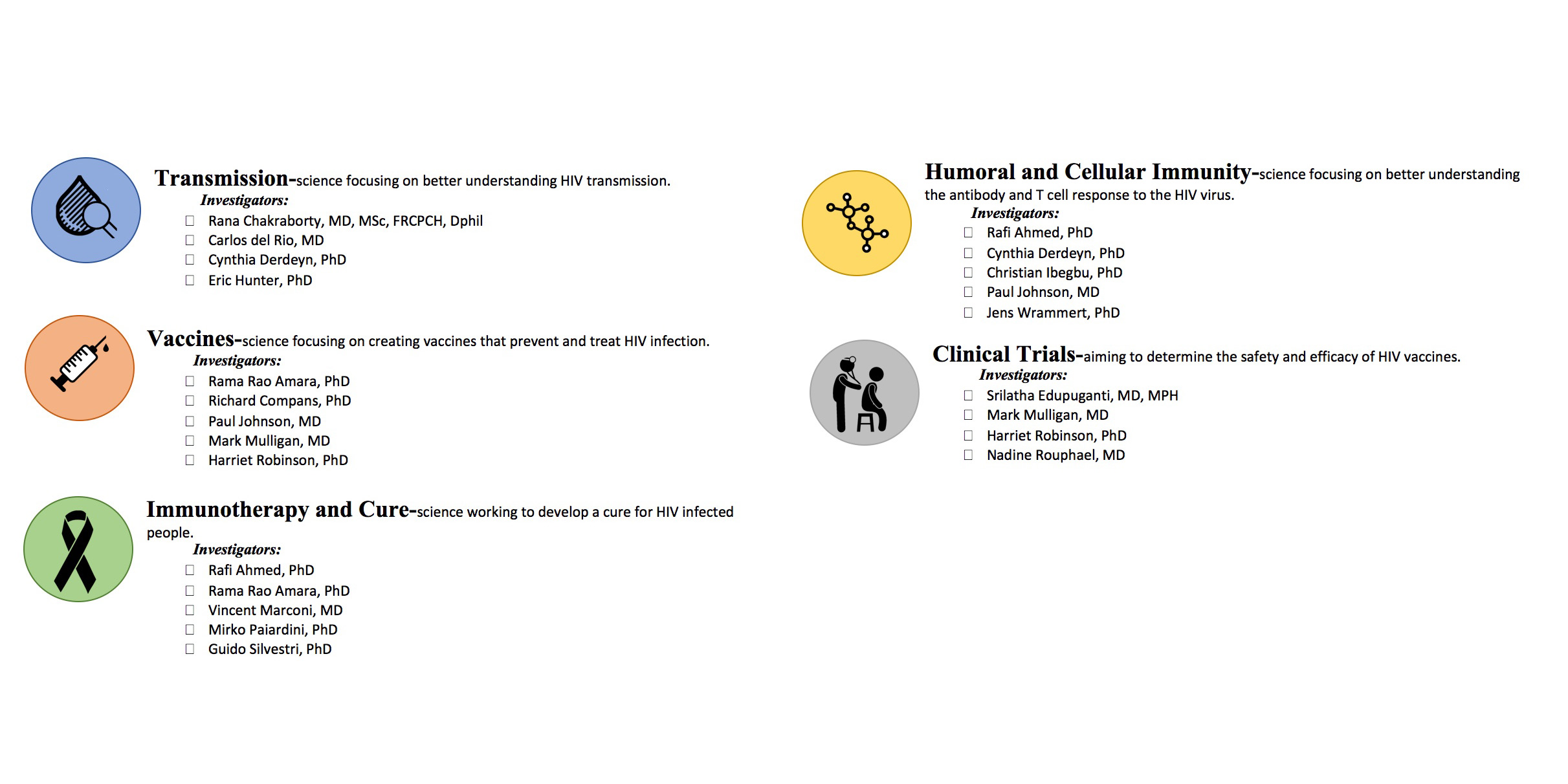HIV/AIDS Research

Developing a vaccine to halt the AIDS epidemic is a key part of the mission of the Emory Vaccine Center, and a significant portion of the research at the EVC relates to this effort. Several aspects of the biology of the Human Immunodeficiency Virus (HIV) and the pathogenesis of its infection make the design of candidate AIDS vaccines a tremendously complex challenge, that can be approached only with a comprehensive strategy that includes basic science approaches, translational animal studies, and, ultimately, clinical trials in humans.
The Emory Vaccine Center has been at the forefront of this challenge for over a decade, thanks to the pioneering work of Drs. Harriet Robinson, Eric Hunter, Rafi Ahmed, Guido Silvestri, Rama Amara, and others, and continues to be at the center of major NIH initiatives in this field, including the recently awarded "Consortia for AIDS Vaccine Research in Nonhuman Primates". Scientists specializing in basic immunology strive to elucidate the fundamental mechanisms by which the immune system responds to HIV infection.
Other investigators examine the interaction between HIV and the host immune system in order to identify ways to prevent or interrupt the process by which the virus induces immunodeficiency. Finally, other researchers translate these findings into new AIDS vaccine strategies, which are tested rigorously in preclinical studies in non-human primates for safety and efficacy before being considered for human clinical trials.
The Hope Clinic of the Emory Vaccine Center, a freestanding clinic located in Decatur, Georgia, conducts vaccine clinical trials and related research studies involving human volunteers. Thus, the EVC’s AIDS vaccine program spans the entire research process, from basic science to translational research to preclinical and clinical trials.